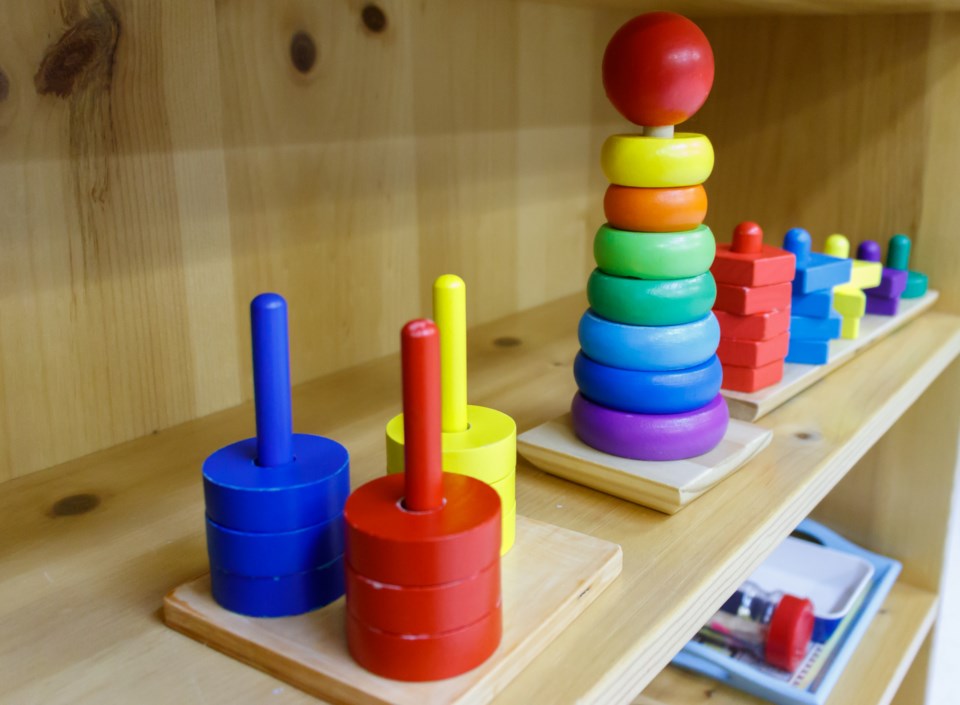LAKELAND - Changes to childcare funding in Alberta could mean an increase in fees for parents who were receiving subsidy under the previous funding formula.
Announced by Minister of Jobs, Economy and Trade Matt Jones on Jan. 30, the new formula gives parents a flat fee of $326.25 per month for a full-time space but eliminates the previous income-based subsidy, which many families were eligible for in addition to the affordability grant. The new funding formula comes into effect on April 1.
Executive director for Little Sprouts Child Care Society in Lac La Biche, Megan Warawa, said she’s already had one parent tell her they will be pulling their two children from care because of the increased cost.
“I think it's really going to impact like the lower-middle class families. It's great for everybody else that pays lots, but for those people, I think they're going to have a really hard time adjusting,” said Warawa.
“Alberta’s government, on behalf of families, will cover about 80 per cent of child-care fees through grants to daycare facilities and family day homes,” said Minister Jones in a statement sent to Lakeland This Week.
Warawa said her waitlist has 50 kids on it right now, so she’s sure she’ll be able to fill the spaces, but there will also be people currently on the wait list who will drop off because they can’t afford childcare without the subsidy.
“Lac La Biche is already a pretty expensive place to live, so I think it’s going to be very impactful on our community,” said Warawa.
In a town hall with childcare providers on Jan. 30, the government released details about the incoming fee guide, which details the minimum and maximum fees a provider can charge based on their region.
According to the new fee guide for full time spaces licensed child care providers can charge a minimum of $1,258 and a maximum of $1,526 for infants under 12 months; 1,245-1,549 for infants between 12 and 19 months; $1,017 – $1,261 for children aged 19 months to less than three years; $932 – $1,219 for three-year-olds; $895 – $1,219 for four-year-olds not yet attending kindergarten; and $835 – $1,101 for kindergarten aged children who require care during school hours.
Parents will only pay the flat fee, with the government making up the difference between that and the total fee being charged.
Tamara Champagne, the executive director of TLC Daycare in St. Paul said the new fee guide will most likely mean an increase in her overall compensation because her current fees are lower than the minimum for the north central region. Under the previous agreement, increases were capped at three per cent a year with the government picking up the increase instead of it being passed on to parents.
“I’m hopeful there’s more money in the bank and I’ll be able to do more, because right now I’m scraping,” said Champagne, noting she has been unable to give any of her staff a raise since 2020.
“I’m trying to be as flexible with them as I can with time off and stuff like that, but there’s only so much I can do. I’d much rather give them more money, because everything else is going up,” said Champagne.
According to Jones, the government is “fostering a more equitable environment that supports operators, reduces administrative burdens, and strengthens the overall childcare system for years to come.”
The information for providers notes all children receiving care will need to be registered in their online system to ensure accountability.
“While it will require programs to undertake some up-front administrative work, it will lead to a more streamlined claims process and less red tape,” reads the fact sheet.



